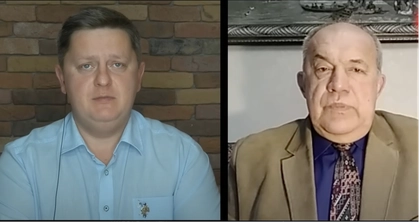Kremlin strategists across Ukraine’s 1,500 km fighting front are pounding selected sectors with glide bombs and then following up with ground assaults, making limited progress at some locations but according to almost all accounts suffering heavy losses everywhere.
Ukrainian sources say the Russian attacks mostly are executed by small groups of infantry, and less often by columns of a dozen armored vehicles or less. Kyiv counterattacks led by units picked for combat effectiveness are gathering in captured prisoners and in a few places taking back lost ground, but overall, the Kremlin has the initiative, a Kyiv Post survey of the past week’s battle reports and combat video showed.
JOIN US ON TELEGRAM
Follow our coverage of the war on the @Kyivpost_official.
In the northern Kharkiv sector, scene of a major Russian offensive launched in early May, Kremlin ground activity over the past four days has ground to a near halt and been limited to skirmishing inside the town Vovchansk, reports said.
Russian air strikes using glider bombs launched daily from outside the range of local air defenses, and aimed at possible Ukrainian defenses, were reported hitting Vovchansk and nearby villages.
A Wednesday situation update published by Ukraine’s Army General Staff (AGS) said that the situation was stable and that on Tuesday Russian forces attempted four assaults in the sector, all repelled. Ukraine’s 82nd Air Assault Brigade, a crack unit sent to counterattack in the Kharkiv sector last week, was still in sector and holding its ground, posts by soldiers from the unit said.

Holiday Spirit Thrives Among Ukrainians Despite War, Study Finds
The all-volunteer 3rd Assault Brigade on May 27 claimed its men and women had in the past week killed, seriously wounded or taken prisoner close to 600 Russian troops in fighting in the Kharkiv sector. On May 28 the unit published an interview with a Russian man identified as a soldier named Igor Sergeevich. According that account, his unit during an attack near Vovchansk suffered crushing losses from Ukrainian drone swarms, mortars, and artillery. Wounded three times, he was captured when a Ukrainian infantry patrol found him, he said.

Russia’s Defense Ministry on Tuesday claimed Kremlin forces had managed 300-600 meters’ progress in Vovchansk against heavy resistance.
The AGS reported Russian assaults recently had been far more intense in the north-eastern Lyman and Siviersk sectors, with Ukrainian troops counting close to twenty Russian ground attacks – almost all by small groups of infantry – in the past 24 hours. Much of the combat, reportedly, was close-in trench fighting in thick forest in the Serebryansky Lis Nature Preserve. Ukrainian defenses held, that report said. On Wednesday, Russian milbloggers reported another round of attacks was in progress and claimed ground gains.
According to a May 28 statement by Ukraine’s Ministry of Emergency Situations, one forest fire sparked by fighting had set 120 square hectares of woods and wetland aflame. Firefighters were on the scene but controlling the fire was complicated by combat taking place nearby, the statement said.
Heavy combat and dozens of glider bomb strikes were reported across the eastern Donbas sector where Russian and Ukrainian troops have faced off for weeks and in some cases months. Most Russian assaults according to official Ukrainian sources were in farmland between the cities of Avdiivka and Pokrovsk, with 25 ground attacks launched in the past 24 hours and limited Russian advances near the village Ocheretyne, the AGS said.
According to Ukrainian milbloggers and public information platforms for Ukraine’s 47th Mechanized Infantry Brigade, the backbone formation of Kyiv defenses in the sector, the unit launched local counterattacks using US-made Bradley Infantry Fighting Vehicles, recovering positions near the village of Krasnohorivka.

Video published on May 27-29 by Strike Drones Company, a UAV outfit attached to 47th Brigade, showed images of Ukrainian quadcopters destroying a Russian tank, blowing up a Russian artillery piece, and dropping mines behind an advancing armored column. One of the videos was geo-located to the Krasnohorivka sector but was not possible to confirm the day it was recorded, Kyiv Post researchers found. In recent battles the 47th has used American Bradleys effectively.
In the nearby Chasiv Yar/Bakhmut sector, reports from both sides told of heavy fighting, particularly along sections of a 30-meter-wide irrigation canal forming the main north-south water barrier in the region. Video published on May 28th by 225th Battalion 127th Territorial Defense Brigade, a local defense unit transferred from north Ukraine to help defend Chasiv Yar, showed at least eight Russian tanks and armored personnel carriers advancing towards Ukrainian positions and getting hit first with howitzer and mortar strikes, and then FPV drones.
Video published by Kraken, a Kharkiv-based National Guard outfit recruited mostly from retirees from commando units in Ukraine’s military and police, showed late-model Russian T-90M and T-72B3M tanks halted by artillery and then set afire by drones in combat geo-located to the Chasiv Yar sector.
Reports credited the Black Swan attack drone company for the kills. Other Kraken media claimed follow-up patrols captured surviving Russian crewmembers. Individual fighter video also placed elements of the International Legion, an infantry formation recruited from volunteers with experience in Western armies, in combat in the area.
Інтернаціональний легіон ГУР штурмує російські позиції в Часовому Ярі, Донецька область.
— EjShahid (@EjShahid) May 22, 2024
Chasiv Yar, Donetsk Oblast, Ukraine
0:01-1:01 - 48.601371, 37.884376
1:01-2:04 - 48.600564, 37.884713@GeoConfirmed @UAControlMap
Source: https://t.co/vVC6NPPVRu pic.twitter.com/JjEpdIh8Ni
All reports save those in Kremlin-controlled media recorded heavy Russian soldier losses. Russian politician Viktor Umerentsev, a pro-Kremlin elected official, on May 27 posted video to his personal V Kontakte channel that he said showed a ward in a hospital in Russia’s Belgorod Oblast swamped with casualties. Umerentsev subsequently deleted the post. The Russian independent news agency Astra reported the video was authentic.
Prisoners of war captured by Ukrainian troops frequently seem to have been targeted by troops with strong combat records sent to a threatened sector by Kyiv high command. According to Kyiv Post research, many if not most of the Ukrainian counterattacks netting claimed Russian soldier captures since mid-May were carried out by veteran units with reputations for strong infantry skills and aggressive small unit commanders, among them the regular army 3rd Assault, 47th and 82nd Brigades, and the Ukrainian “volunteer” Kraken Group.

In the northern Kharkiv sector, elements of Ukraine’s Special Operations Forces (SOF), a picked commando unit analogous to the US Green Berets or Polish Grom, was confirmed in action attacking isolated Russian defensive positions and, according to unit media, wiping out defenders.
Helmet-cam video published by Kyiv’s Special Operations Forces (SOF) showed Ukrainian operators infiltrating a Russian position inside a wood line and overwhelming defenders with small arms and rocket fire. A voiceover said 11 Russian soldiers died and 3 were taken prisoner in the short action taking place in the Kharkiv sector. A masked man identifying himself as a Russian soldier and told a questioner his unit had suffered heavy casualties from kamikaze drones and mortar fire before he was taken prisoner.
Russian politician and propagandist Dmitriy Rogozin in a May 27 statement confirmed the Ukrainian SOF – a low-profile unit normally operating behind enemy lines – was conducting assaults in Kharkiv sector. Rogizin claimed the elite Ukrainian commandoes’ “ ground gains were insignificant... and their losses were huge,” without offering evidence.
Other units with reputations for trained infantry recently reported in sectors of Russian attacks include the, the International Legion, and two company-sized infantry units drawn from Russian nationals volunteering to fight on Ukraine’s side.
You can also highlight the text and press Ctrl + Enter









